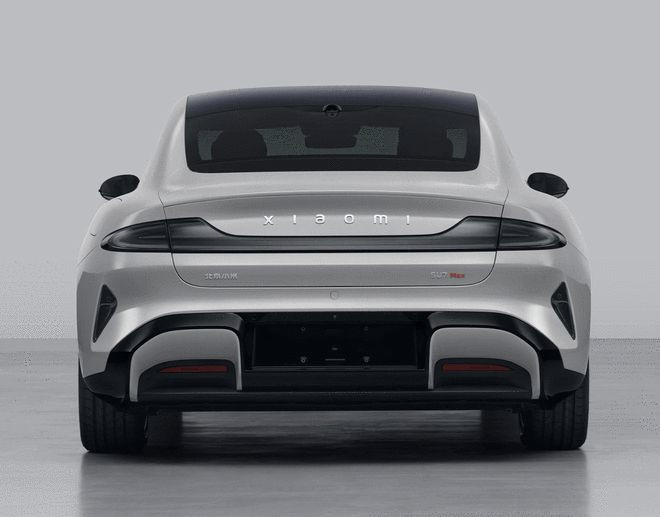Two years after Lei Jun, Xiaomi's CEO, announced the company's venture into car manufacturing, calling it his "last major entrepreneurial project," every move of Xiaomi in the automotive sector has garnered significant market attention.
On November 15, the Ministry of Industry and Information Technology (MIIT) released its latest batch of new car declarations, featuring Xiaomi's car. This inclusion follows Xiaomi's approval from the National Development and Reform Commission in August, marking a significant step in its journey to car manufacturing. According to Xiaomi's plan, this new car is expected to go into mass production in the first half of 2024.
Lei Jun, who has been preparing for this venture for some time, is expected to showcase his car at next year's auto shows, transitioning from a spectator to a participant.
Following the MIIT's announcement, Xiaomi's first car model was revealed, drawing positive reactions from netizens for its appearance. The focus now shifts to the car's smart driving capabilities and pricing.
Information disclosed by the MIIT indicates that Xiaomi's first car, named "SU7," is a sedan. With dimensions of 4997mm in length, 1963mm in width, 1440mm in height, and a wheelbase of 3 meters, the car is positioned as a C-class luxury sedan. As Xiaomi's first "Dream Car" aimed at young consumers, the final pricing is highly anticipated.
The car listed in the MIIT's catalog will use ternary lithium-ion batteries from CATL and lithium iron phosphate batteries from BYD's subsidiary FinDreams Battery. It will also feature engines from different manufacturers and power levels, suggesting a range of configurations from entry-level to high-end models to showcase Xiaomi's technological prowess.
Xiaomi is leveraging Beijing Automobile Works Co., Ltd.'s production qualifications to manufacture its cars on its own production lines. This approach allows Xiaomi to produce cars compliantly without outsourcing. As Xiaomi scales up, it might acquire independent production qualifications, which is crucial for tech giants and new players in the automotive industry to build brand reputation.
Since Xiaomi's announcement in 2021 to enter the car market, the Chinese new energy vehicle market has rapidly evolved, with a focus shifting towards intelligent vehicles. The pace of change has exceeded the expectations of industry leaders like BYD's Chairman Wang Chuanfu.
Xiaomi faces the challenge of standing out in an ongoing price war. The market competition is intensifying, with players like Huawei and XPeng making significant strides in intelligent driving and smart cabins, aiming to establish a clear consumer perception of their advanced capabilities in these areas.
Tianfeng International analyst Guo Mingchi predicts that Xiaomi's car, set to launch in 2024, could see first-year shipments of 50,000 to 60,000 units. If priced around or below 250,000 yuan, there could be room for upward revision in shipment volumes. However, Xiaomi's internal target of selling 100,000 units in the first year and reaching a cumulative delivery of 900,000 units over three years is ambitious for a new entrant.
Xiaomi's opportunity lies in the nascent stage of the intelligent vehicle market. An international investment bank executive noted that the focus in China's electric vehicle market has shifted from hardware to intelligent driving, software, services, and systematic competition. Xiaomi's advantage lies in integrating its entire ecosystem and innovating in its business model.
Xiaomi's investments span various aspects of the smart driving car industry, including partnerships with companies like Hesai Technology and Suteng Innovation, providing autonomous driving solutions like Momenta, Deepmotion, and Horizon Robotics.
Recently, Xiaomi unveiled the Xiaomi Pengpai OS and announced a new "Human-Vehicle-Home Ecosystem" strategy, showcasing its readiness in smart cabins.
As a tech company with a comprehensive ecosystem covering smartphones, operating systems, IoT, and hardware, Xiaomi has a unique competitive edge. Its strong financial position, global sales channels, and past supply chain accumulations provide substantial support for Xiaomi's automotive venture.
Lei Jun faces multiple challenges in enhancing product strength and matching production capacity. His ambition to enter the industry's top tier within a year and become one of the top five globally is significant. Lei Jun's journey in the automotive marathon has just begun, marking a crucial phase in his "last major entrepreneurial project."






